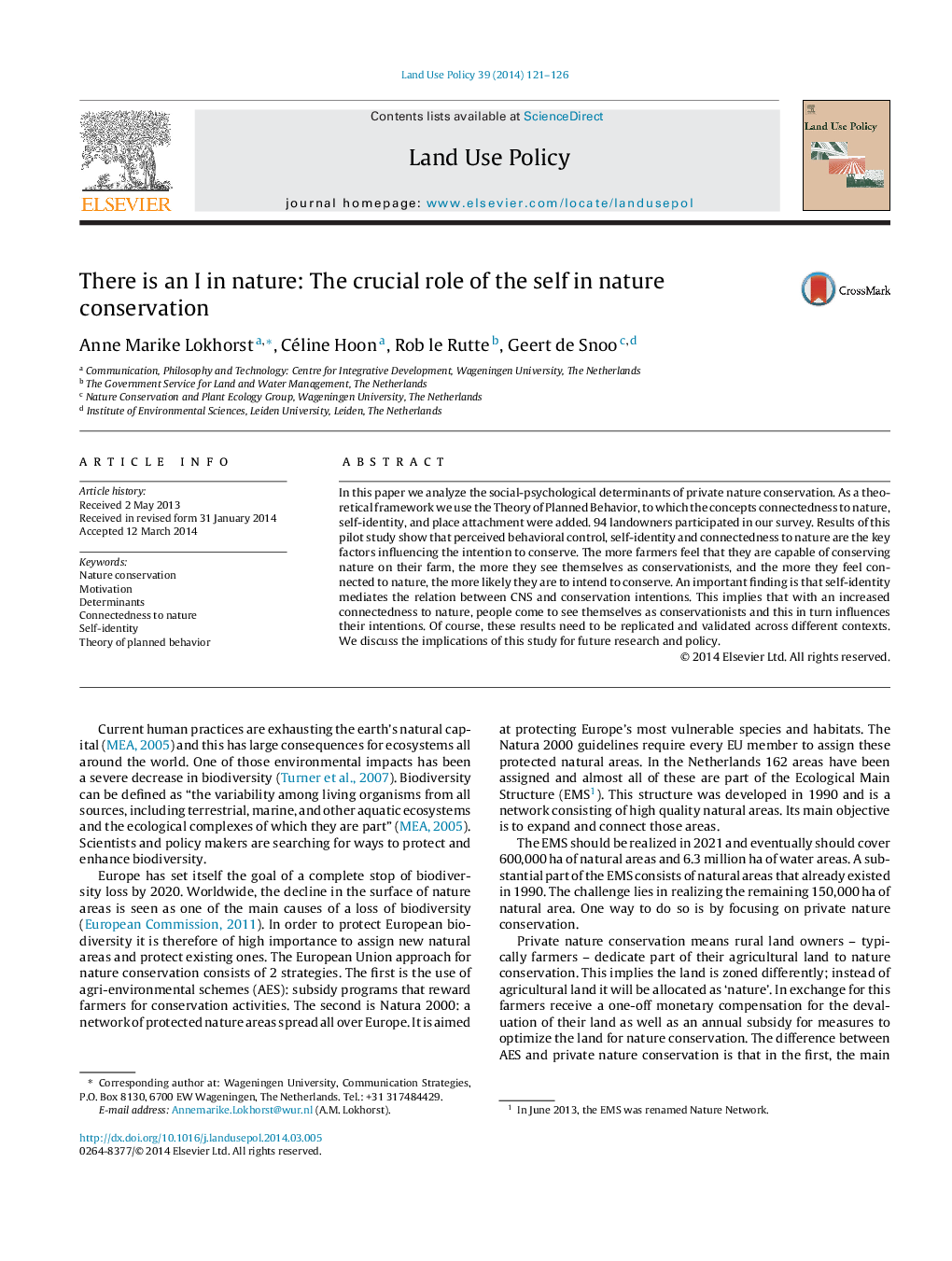| Article ID | Journal | Published Year | Pages | File Type |
|---|---|---|---|---|
| 6548592 | Land Use Policy | 2014 | 6 Pages |
Abstract
In this paper we analyze the social-psychological determinants of private nature conservation. As a theoretical framework we use the Theory of Planned Behavior, to which the concepts connectedness to nature, self-identity, and place attachment were added. 94 landowners participated in our survey. Results of this pilot study show that perceived behavioral control, self-identity and connectedness to nature are the key factors influencing the intention to conserve. The more farmers feel that they are capable of conserving nature on their farm, the more they see themselves as conservationists, and the more they feel connected to nature, the more likely they are to intend to conserve. An important finding is that self-identity mediates the relation between CNS and conservation intentions. This implies that with an increased connectedness to nature, people come to see themselves as conservationists and this in turn influences their intentions. Of course, these results need to be replicated and validated across different contexts. We discuss the implications of this study for future research and policy.
Keywords
Related Topics
Life Sciences
Agricultural and Biological Sciences
Forestry
Authors
Anne Marike Lokhorst, Céline Hoon, Rob le Rutte, Geert de Snoo,
